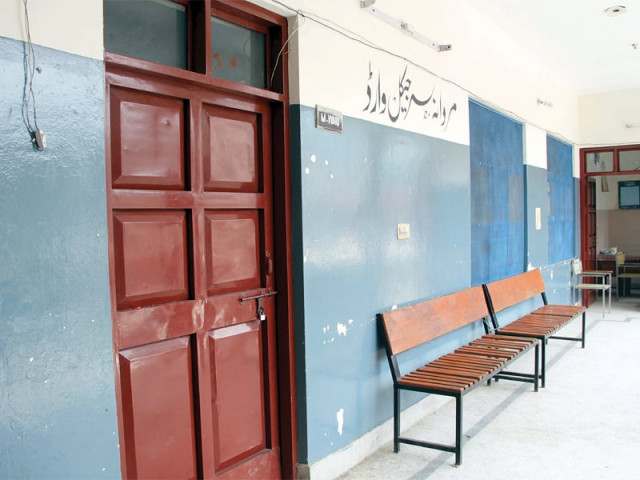Stitch in time: The bane of emergencies
Khyber Teaching Hospital, HMC ill-equipped to handle crisis situations.

Khyber Teaching Hospital, HMC ill-equipped to handle crisis situations. PHOTO: FAZAL KHALIQ/EXPRESS
Two months ago, an Afghan citizen residing in Karkhano Market brought his child to the emergency ward of Hayatabad Medical Complex (HMC). The doctors there referred him to the children’s ward where the father was handed a list of medicines urgently needed to save the child’s life.
Since the Afghan national was not familiar with the city, it took him over an hour to procure the medicines. By the time he returned to the hospital, his son had breathed his last. The life, however, could have been saved had the medicines been available at the hospital.

“There is an urgent need to improve the current condition of the accident and emergency (A&E) departments of both the HMC and Khyber Teaching Hospital (KTH) because they are not giving the required treatment to patients,” said a senior doctor of the HMC while requesting anonymity.
He added there is only one Casualty Medical Officer (CMO), who is a general physician, in the whole department. There is also a lack of life saving drugs, nebulizers and other medicines.
“Once patients arrive in the ward, they are mostly referred to other departments which delays treatment,” the doctor said. “The A&E department should be specialised to treat patients that come in. If you are sending patients to other wards, then there is no need for this department.”
A doctor at KTH said the situation worsens at night as most of the staff leaves. “There are hardly two or three supporting staff members with the CMO during that time,” he said.
The doctor maintained there are no facilities to conduct pathology tests in the hospital so patients have to face the added inconvenience of going to other laboratories for the purpose.
Beds inside the emergency ward of KTH are also limited and in the case of a blast or terror attack, the administration finds it difficult to accommodate the victims. On the day of the Arbab Road blast that took place three months back, the orthopedic ward had to be evacuated for the blast victims as there were not enough beds in the emergency ward.
Special Secretary Health Dr Akbar Khan agreed the situation calls for drastic change in the emergency units of tertiary hospitals in the city as patients from across the province come here for treatment.
Khan said they have constituted a working group of experts who will analyse the situation and present a list of suggestions. “This is one of the steps the provincial government is taking to improve the healthcare system,” he said.
“The Lady Reading Hospital is now getting more patients, which shows it has improved,” the doctor said, adding other hospitals will also be streamlined.
Published in The Express Tribune, July 16th, 2013.













COMMENTS
Comments are moderated and generally will be posted if they are on-topic and not abusive.
For more information, please see our Comments FAQ